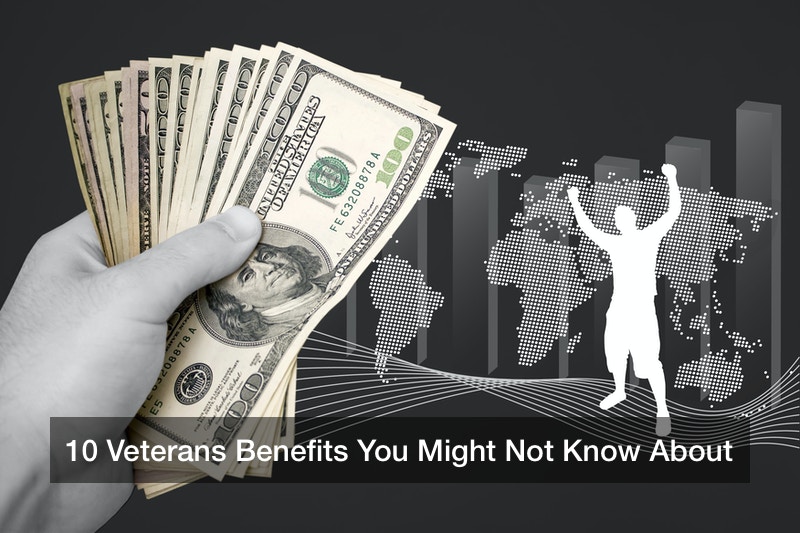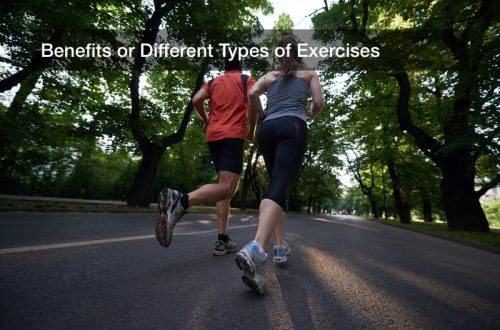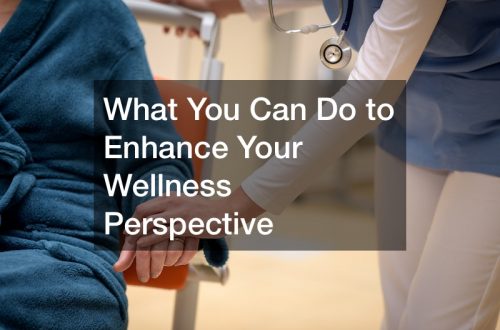
Veterans are uniquely situated. Having served the country, the Veterans Administration
As such, the VA’s programs are spread broadly across many areas, including medical care, health insurance, mental health assistance for veterans, veterans homes, home loan programs, and funeral benefits. Moreover, veterans programs are run by states, private organizations, and churches.
Because of the many programs that are available, veterans might not be aware of every possible source of assistance. Here are ten benefits veterans might miss:
GI Bill
Educational assistance is available to service members and veterans, as well as their families, through the GI Bill and other educational programs administered by the VA. Educational benefits through the GI Bill include:
- Tuition assistance for undergraduate and graduate degree programs at a college or university and certificate programs at a trade school.
- Stipend for books and supplies.
- Housing assistance for students that attend school more than 50% of their time.
- Moving expenses for students who live in rural areas moving at least 500 miles to attend school.
Almost every service member and veteran are eligible for educational benefits. The amount depends on the veteran’s duration of service, starting with 90 days of active service to qualify for the GI Bill.
Importantly, GI Bill benefits are transferable to qualified dependents like children and spouses of eligible veterans. As a result, these education benefits can help the veteran’s family just as much as they can help the veteran.

In addition to assistance with additional education, the VA also provides vocational rehabilitation services. These services are available to veterans who have a physical or mental disability resulting from their military service. For example, as part of the physical and mental health assistance for veterans, the VA can provide career counseling job search assistance to help veterans identify jobs they would be qualified for. Similarly, the VA can provide counseling for veterans who want to start a business.
Disability Benefits
Veterans who have a physical or mental disability connected to their service receive disability payments. The amount of these disability payments is related to the type and severity of the disability. These disability payments are intended to compensate veterans for their loss of employment capacity resulting from the disability.
A few important facts about VA disability benefits:
- The disability must be service-connected. This means that it manifested during a veteran’s time in the military or was caused, or worsened, by the veteran’s service. For example, veterans who were exposed to toxic chemicals and develop physical disabilities as a result can establish a service connection.
- The disability veterans are compensated for can be mental. Post-traumatic stress disorder (PTSD), for example, is eligible for VA disability benefits as part of the VA’s mental health assistance for veterans.
- The VA requires evidence of the disability. This usually takes the form of medical records during and after service.
Veterans are periodically re-evaluated to determine if the veteran has recovered and VA disability benefits are no longer needed. This can include a mandatory examination at a VA hospital. If the examination determines that the disability has healed, improved, or worsened, the veteran’s benefits may be adjusted or terminated.
Aid and Attendance Benefits
Veterans who are housebound due to their service-connected disability may be eligible for an additional “aid and attendance” benefit on top of their disability benefits. This benefit is intended to pay for someone to assist the veteran with daily self care activities such as bathing, dressing, and eating.
Other than blindness, there are no specific disabilities that are eligible (or ineligible) for aid and attendance benefits and each disability is evaluated on its own merits. For example, a veteran who suffers from PTSD or a traumatic brain injury (TBI) is just as eligible for aid and attendance benefits as part of their mental health assistance for veterans as someone who has impaired mobility.

Aid and attendance benefits require a special form to be filed with the VA. Because the VA is notoriously slow to process claims and has a fairly high rejection rate, you may want to consult a veterans affair attorney to help you prepare the application. Getting the application correct the first time can save months, if not years, of waiting.
Veterans Healthcare
The VA operates an extensive network of hospitals and medical facilities. Veterans covered by the VA’s healthcare system are entitled to medical care with no or low co-pays. However, the system prioritizes disabled and poor veterans so services are not available for all veterans. However, if a veteran qualifies for VA healthcare benefits, the veteran’s spouse and children may also qualify. Moreover, spouses and children of deceased veterans may be eligible for VA healthcare coverage if the veteran was receiving disability benefits at the time of death or died in the line of duty.
Veterans who are not eligible for VA healthcare benefits might be eligible for TRICARE, the healthcare system for active duty military and their families. Specifically, military retirees are eligible for TRICARE. TRICARE is a PPO healthcare plan that provides both physical and mental health assistance for veterans.
All other veterans are left with the options of purchasing health insurance, receiving health insurance through their post-service employer, or qualifying for Medicare or Medicaid.
Long Term Care
Veterans eligible for VA healthcare are also eligible for VA long term care in a nursing home, assisted living home, or in the veteran’s own home. In connection with the VA’s long term healthcare benefits, the VA will pay for nursing care, assistance with daily self-care, physical therapy, pain management, and support for caregivers.
The VA has resources to assist veterans with advance care planning. While all veterans should consider preparing instructions explaining their wishes for their healthcare, it is especially important for patients who are already receiving long term care from the VA to provide instructions.
These instructions, known as advanced health care directives, appoint someone to make healthcare decisions for the veteran if the veteran requires medical treatment but is unable to communicate. For example, a veteran who is unconscious or lacks brain activity can designate a relative or friend to decide whether life-saving treatment should be provided (or suspended). Similarly, a veteran who has dementia can designate someone to determine whether to provide mental health assistance for veterans.
Social Security Benefits
Some veterans might believe that they have to choose between social security benefits and VA disability benefits. However, this is not the case. A veteran can qualify for both Social Security Disability Insurance (SSDI) and VA disability benefits simultaneously.

Eligibility for VA healthcare depends on a veteran being disabled. However, about 31% of VA disability claims are rejected. Thus, for veterans to receive disability benefits, VA healthcare, and VA long term care benefits, they must overcome this obstacle.
One way for veterans to improve their chances of being approved for VA disability benefits is to hire disability attorneys to submit your VA disability claim.
Importantly, however, VA disability benefits are not means-tested. In other words, a veteran receives VA disability benefits solely based on the disability and not on the veteran’s net worth or income level. This means that VA disability benefits cannot be denied because the veteran already receives SSDI.
SSDI is not awarded to anyone earning income because SSDI is only available to people who are unable to work. However, the Social Security Administration (SSA) does not consider VA disability benefits to be “earned income.” Therefore, SSDI cannot be denied because a veteran receives VA disability benefits.
In short, the VA does not care whether you receive SSDI when you apply for VA disability benefits, and the SSA does not care if you receive VA disability benefits when you apply for SSDI. As a result, a veteran would clearly qualify for both VA disability benefits and SSDI if the veteran is disabled and unable to work while receiving physical or mental health assistance for veterans.
Substance Abuse Treatment
Veterans who are eligible for VA healthcare have access to outpatient counseling, intensive outpatient treatment, inpatient residential treatment, and continuing care meetings. These programs for alcohol and drug addiction treatment are operated at VA clinics and hospitals.
The conundrum for veterans is that they have to qualify for VA healthcare to be eligible for the VA’s substance abuse programs. However, drug and alcohol addiction are not considered disabilities by the VA. Thus, the veteran must have some other service-connected disability to qualify for VA healthcare. Once the veteran qualifies for VA healthcare due to the service-connected disability, the veteran can access the VA’s substance abuse treatment.
For example, a veteran may have been diagnosed with PTSD due to combat experienced while serving. PTSD is a service-connected disability and the veteran is eligible to receive VA disability benefits for the veteran’s PTSD. Moreover, the veteran would be eligible for mental health assistance for veterans under the VA’s healthcare plan.
Additionally, the veteran’s substance abuse disorder would also be treatable under VA healthcare. In this example, the veteran may have co-existing mental and substance abuse diagnoses and, as such, would be eligible for both substance abuse treatment and mental health assistance for veterans.
VA Telehealth
The VA has a telemedicine implementation called “VA Telehealth.” This program allows veterans enrolled in VA healthcare to conduct virtual visits with a VA medical center.

This program is especially useful for veterans who:
- Live far from a VA medical facility. The VA operates 170 medical centers and over 1,000 outpatient clinics. However, more remote veterans could be over 100 miles from the nearest VA facility and an in-person visit could require a round trip several hours long.
- Elderly veterans. The VA’s medical centers may be difficult for seniors to access and navigate, particularly for those with mobility limitations.
- Homebound veterans. Veterans who are homebound due to physical or mental disabilities may be unable to reach VA medical centers for physical and mental health assistance for veterans.
Home Loans and Home Subsidies
The benefits of home ownership are well-known. Home owners generally happier, healthier, and more stable. In fact, according to Houzz, over 30% of homeowners say their lifestyle became healthier after they remodeled their kitchens.
When veterans need to borrow money to buy or upgrade a home, they may qualify for a VA-backed loan or mortgage. Qualification is based on time-in-service and the form of discharge. Different eligibility requirements apply to veterans who served during different periods, however, generally speaking, service members must serve at least 90 days during wartime or at least 181 days during peacetime.
If a veteran qualifies for a VA-backed home loan, the VA guarantees part of the loan. This allows the bank or mortgage lender to offer better terms to qualifying veterans than their standard loans. In fact, many VA-backed loans require low or no down payment.
For disabled veterans, the VA also offers subsidies for renovating veterans’ homes to accommodate their disabilities. These subsidies are available for installing ramps, grab bars, or other accommodations. Keep in mind, however, that despite the facts about how art improves healing, you cannot use a VA disability housing grant to install an art studio in your home. Rather, these grants are intended to be used to adapt a home for veterans who have lost limbs, lost their eyesight, or have respiratory conditions.
Assistance with Daily Activities
Private organizations like veterans organizations and catholic charities offer assistance to veterans for low or no cost. Some of the services include:
- Transportation to medical appointments.
- Legal services.
- Assistance with filing claims for VA disability benefits.
- Homeless shelters.
- Soup kitchens and food banks
These services are generally coordinated at the local level. Some ways to find organizations that provide assistance to veterans include:
- The local chapter of the Veterans of Foreign Wars (VFW).
- The VA’s list of veterans service organizations (VSOs).
- Your state’s veterans affairs office.
In addition to charitable organizations, your state may also offer programs to assist veterans. These benefits vary from state to state. However, some states offer reductions or waivers on vehicle registration fees, reductions on income or property taxes, and special loans for veteran-owned businesses.

Moreover, the U.S. federal government and many state governments have a hiring preference for veterans. This means that many veterans who are looking for work can often more easily join local, state, or federal government agencies than private companies. This allows veterans to use the government experience they gained in the military as a head start in a government career.
At the end of life, the VA offers burial benefits for veterans. The amount of the benefit is based on whether the veteran was disabled and whether the veteran died in a VA facility. Generally, the VA will contribute toward, but does not cover the full cost of, a funeral and burial in a private cemetery. However, if the veteran chooses to be buried in a national cemetery, the veteran is entitled to free burial services including:
- A grave site with no opening or closing fees.
- A grave marker or headstone.
- A flag and Presidential Memorial Certificate.
The country owes veterans a debt of gratitude. By providing services like disability benefits, healthcare, loan guarantees, long term care, burial benefits, and mental health assistance for veterans, the nation shows its gratitude and begins to repay that debt.





